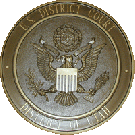David Barlow
David Bruce Barlow is a judge on the United States District Court for the District of Utah. On June 12, 2019, President Donald Trump (R) nominated Barlow to a seat on this court. The U.S. Senate confirmed Barlow on December 4, 2019, by a vote of 88-4.[1] He received commission on January 6, 2020.[2] To see a full list of judges appointed by Donald Trump, click here.
The United States District Court for the District of Utah is one of 94 U.S. District Courts. They are the general trial courts of the United States federal courts. To learn more about the District of Utah, click here.
Barlow was a partner in the office of Dorsey & Whitney LLP in Salt Lake City, Utah, from 2018 to 2019.[3]
Judicial nominations and appointments
United States District Court for the District of Utah
- See also: Federal judges nominated by Donald Trump
On June 12, 2019, President Donald Trump (R) nominated Barlow to a seat on the United States District Court for the District of Utah. The U.S. Senate confirmed Barlow on December 4, 2019, by a vote of 88-4.[1] To read more about the federal nominations process, click here.
| Nominee Information |
|---|
| Name: David B. Barlow |
| Court: United States District Court for the District of Utah |
| Progress |
| Confirmed 175 days after nomination. |
| Questionnaire: Questionnaire |
| QFRs: QFRs (Hover over QFRs to read more) |
Confirmation vote
The U.S. Senate confirmed Barlow on December 4, 2019, on a vote of 88-4.[1] To see a full breakdown of the vote on the official U.S. Senate website, click here.
| Barlow confirmation vote (December 4, 2019) | |||||||||
|---|---|---|---|---|---|---|---|---|---|
| Party | Yea | Nay | No vote | ||||||
| 38 | 4 | 3 | |||||||
| 49 | 0 | 4 | |||||||
| 1 | 0 | 1 | |||||||
| Total | 88 | 4 | 8 | ||||||
Change in Senate rules
Barlow was confirmed to a U.S. District Court under a new precedent the Senate established.
On April 3, 2019, the U.S. Senate voted 51-48 in favor of a change to chamber precedent lowering the maximum time allowed for debate on executive nominees to posts below the Cabinet level and on nominees to district court judgeships from 30 hours after invoking cloture to two.[4]
The change was passed under a procedure, often referred to as the nuclear option, that requires 51 votes rather than 60.[5]
It was the third use of the nuclear option in Senate history. In 2013, it was used to eliminate the 60-vote threshold to confirm presidential nominees, except those to the Supreme Court. In 2017, it was used to eliminate the 60-vote threshold required to confirm Supreme Court nominees.[6] For more, see Filibuster and reconciliation in the United States Congress.
Senate Judiciary Committee hearing
The Senate Judiciary Committee held hearings on Barlow's nomination on July 17, 2019.[7] On October 17, 2019, the committee voted 19-3 to advance Barlow's nomination to the full U.S. Senate.[8]
Nomination
President Donald Trump (R) announced his intent to nominate Barlow to a seat on the United States District Court for the District of Utah on May 29, 2019.[3] The U.S. Senate officially received the nomination on June 12, 2019. Barlow was nominated to replace Judge Clark Waddoups, who assumed senior status] on January 31, 2019.[1]
The American Bar Association unanimously rated Barlow well qualified for the position.[9] To read more about ABA ratings, click here.
Early life and education
Barlow was born in Provo, Utah, in 1971. He obtained a B.A., summa cum laude, in political science from Brigham Young University in 1995. He earned a J.D. from Yale Law School in 1998. During his legal studies, Barlow was a submissions editor for the Yale Law and Policy Review.[10][11]
Professional career
- 2020-present: Judge, U.S. District Court for the District of Utah
- 2018-2019: Partner, Dorsey & Whitney LLP
- 2017-2018: Vice president of compliance, Walmart
- 2014-2017: Partner, Sidley Austin LLP
- 2011-2014: U.S. attorney, District of Utah
- 2011: General counsel and chief counsel, Judiciary, U.S. Senate Office of Senator Mike Lee (R)
- 2000-2010: Sidley Austin LLP
- 2006-2010: Partner
- 2000-2006: Associate
- 1998-2000: Associate, Locke Lord Bissell & Liddell LLP[11]
Awards and associations
Awards
- 2014: NAACP Distinguished Service Award, Utah Chapter
- 1999: Pro Bono Advocates Lawyer of the Year Award[11]
Associations
- Aldon J. Anderson Inn of Court
- 2013-2017: Master of the Bench
- American Bar Association
- Boy Scouts of America
- 2015-2017: Chartered organization representative
- D.C. Bar Association
- Defense Research Institute
- Federal Bar Association
- National Association of Former United States Attorneys
- 2015-2018: Board of Directors
- United States Attorney General's Advisory Committee
- U.S. Department of Justice Local Government Coordination Working Group
- 2013-2014: Founding chair
- Utah Bar Association[11]
About the court
| District of Utah |
|---|
| Tenth Circuit |

|
| Judgeships |
| Posts: 5 |
| Judges: 5 |
| Vacancies: 0 |
| Judges |
| Chief: Robert Shelby |
| Active judges: Ann Marie McIff Allen, David Barlow, Howard Nielson, Jill N. Parrish, Robert James Shelby Senior judges: |
The United States District Court for the District of Utah is one of 94 United States district courts. The court is based in Salt Lake City, Utah, with another courtroom in Ogden, Utah. When decisions of the court are appealed, they are appealed to the United States Court of Appeals for the Tenth Circuit based in downtown Denver, Colorado, at the Byron White Federal Courthouse.
The District of Utah has original jurisdiction over cases filed within its jurisdiction. These cases can include civil and criminal matters that fall under federal law.
There are two court divisions, each covering the following counties:
The Central Division, covering Beaver, Carbon, Daggett, Duchesne, Emery, Garfield, Grand, Iron, Juab, Kane, Millard, Piute, Salt Lake, San Juan, Sanpete, Sevier, Summit, Tooele, Uintah, Utah, Wasatch, Washington, and Wayne counties
The Northern Division, covering Box Elder, Cache, Davis, Morgan, Rich, and Weber counties
To read opinions published by this court, click here.
The federal nomination process
Federal judges are nominated by the president of the United States and confirmed by the Senate. There are multiple steps to the process:
- The president nominates an individual for a judicial seat.
- The nominee fills out a questionnaire and is reviewed by the Senate Judiciary Committee.
- The Senate Judiciary Committee holds a hearing with the nominee, questioning them about things like their judicial philosophy, past rulings or opinions, etc.
- As part of this process, the committee sends a blue slip to senators from the home state in which the judicial nomination was received, allowing them to express their approval or disapproval of the nominee.
- After the hearing, the Senate Judiciary Committee will vote to approve or return the nominee.
- If approved, the nominee is voted on by the full Senate.
- If the Committee votes to return the nominee to the president, the president has the opportunity to re-nominate the individual.
- The Senate holds a vote on the candidate.
- If the Senate confirms the nomination, the nominee receives a commission to serve a lifelong position as a federal judge.
- If the Senate does not confirm the nomination, that nominee does not become a judge.
See also
- United States District Court for the District of Utah
- United States Court of Appeals for the 10th Circuit
External links
|
Officeholder United States District Court for the District of Utah |
- United States District Court for the District of Utah
- United States Court of Appeals for the 10th Circuit
- Biography from the Federal Judicial Center
- Biography from Dorsey & Whitney LLP
Footnotes
- ↑ 1.0 1.1 1.2 1.3 Congress.gov, "PN853 — David B. Barlow — The Judiciary," accessed October 17, 2019
- ↑ Federal Judicial Center, "Barlow, David Bruce," accessed January 8, 2020
- ↑ 3.0 3.1 WhiteHouse.gov, "President Donald J. Trump Announces Judicial Nominees and United States Marshal Nominee," May 29, 2019
- ↑ The Hill, "GOP triggers 'nuclear option' to speed up Trump picks," April 3, 2019
- ↑ Axios, "Senate GOP invokes 'nuclear option' to speed up confirmations of Trump nominees," April 3, 2019
- ↑ NBC News, "McConnell to use 'nuclear option' to confirm lower-level nominees," April 2, 2019
- ↑ U.S. Senate Committee on the Judiciary, "Nominations," July 17, 2019
- ↑ U.S. Senate Committee on the Judiciary, "Results of the Executive Business Meeting," October 17, 2019
- ↑ American Bar Association, "Ratings of Article III and Article IV judicial nominees," October 16, 2019
- ↑ Dorsey & Whitney LLP, "David B. Barlow," accessed May 31, 2019
- ↑ 11.0 11.1 11.2 11.3 U.S. Senate Committee on the Judiciary, "Questionnaire for judicial nominees: David Bruce Barlow," accessed October 17, 2019
| Political offices | ||
|---|---|---|
| Preceded by - |
United States District Court for the District of Utah 2020-Present |
Succeeded by - |
| |||
|---|---|---|---|
| Active judges |
Chief Judge: Robert Shelby • Jill Parrish • Howard Nielson • David Barlow • Ann Marie McIff Allen | ||
| Senior judges |
Tena Campbell • David Sam • Dale Kimball • Brian Stewart (Utah) • Clark Waddoups • David Nuffer • | ||
| Magistrate judges | Dustin B. Pead • Cecelia Romero • Paul Kohler • Daphne Oberg • Jared Bennett • | ||
| Former Article III judges |
Bruce Jenkins • Dee Benson • John Augustine Marshall • Tillman Davis Johnson • Aldon Anderson • Paul Cassell • Albert Christensen • Willis Ritter • David Winder • | ||
| Former Chief judges |
Tena Campbell • Bruce Jenkins • David Sam • Dee Benson • Aldon Anderson • Willis Ritter • David Winder • | ||
Federal courts:
Tenth Circuit Court of Appeals • U.S. District Court: District of Utah • U.S. Bankruptcy Court: District of Utah
State courts:
Utah Supreme Court • Utah Court of Appeals • Utah District Courts • Utah Juvenile Courts • Utah Justice Courts
State resources:
Courts in Utah • Utah judicial elections • Judicial selection in Utah





